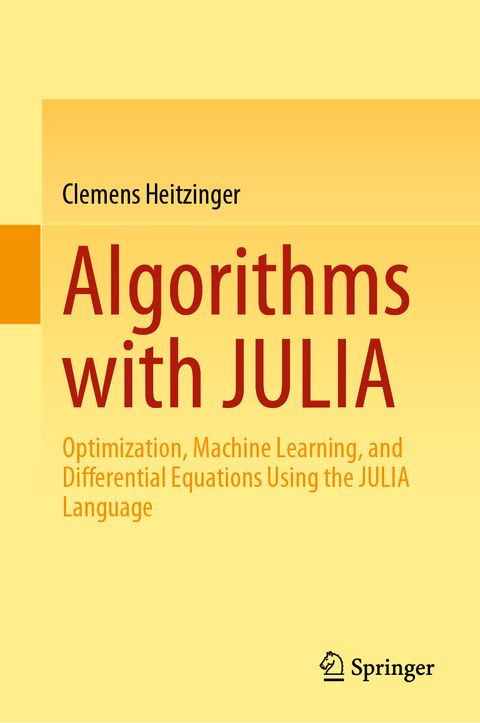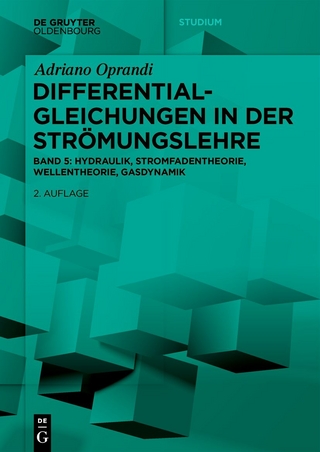
Algorithms with JULIA
Springer International Publishing (Verlag)
978-3-031-16559-7 (ISBN)
This book provides an introduction to modern topics in scientific computing and machine learning, using JULIA to illustrate the efficient implementation of algorithms. In addition to covering fundamental topics, such as optimization and solving systems of equations, it adds to the usual canon of computational science by including more advanced topics of practical importance. In particular, there is a focus on partial differential equations and systems thereof, which form the basis of many engineering applications. Several chapters also include material on machine learning (artificial neural networks and Bayesian estimation).
JULIA is a relatively new programming language which has been developed with scientific and technical computing in mind. Its syntax is similar to other languages in this area, but it has been designed to embrace modern programming concepts. It is open source, and it comes with a compiler and an easy-to-use package system.
Aimed at students ofapplied mathematics, computer science, engineering and bioinformatics, the book assumes only a basic knowledge of linear algebra and programming.
Clemens Heitzinger is Associate Professor at the TU Vienna.
An Introduction to the Julia Language.- Functions.- Variables, Constants, Scopes, and Modules.- Built-in Data Structures.- User Defined Data Structures and the Type System.- Control Flow.- Macros.- Arrays and Linear Algebra.- Ordinary Differential Equations.- Partial-Differential Equations.- Global Optimization.- Local Optimization.- Neural Networks.- Bayesian Estimation.
"The author's writing style is clear and concise, making the book easy to follow and understand. The book also includes useful code snippets and diagrams that help illustrate the concepts and algorithms discussed. ... the book is well-written and an excellent resource for all those interested in learning the Julia language along with its applications. The extensive discussion of algorithms covering a variety of topics makes it a beneficial book for students, teachers, and researchers alike." (Syed Inayatullah, zbMATH 1512.90003, 2023)
“The author’s writing style is clear and concise, making the book easy to follow and understand. The book also includes useful code snippets and diagrams that help illustrate the concepts and algorithms discussed. … the book is well-written and an excellent resource for all those interested in learning the Julia language along with its applications. The extensive discussion of algorithms covering a variety of topics makes it a beneficial book for students, teachers, and researchers alike.” (Syed Inayatullah, zbMATH 1512.90003, 2023)
| Erscheinungsdatum | 14.12.2022 |
|---|---|
| Zusatzinfo | XXI, 439 p. 15 illus., 13 illus. in color. |
| Verlagsort | Cham |
| Sprache | englisch |
| Maße | 155 x 235 mm |
| Gewicht | 896 g |
| Themenwelt | Mathematik / Informatik ► Mathematik ► Analysis |
| Mathematik / Informatik ► Mathematik ► Wahrscheinlichkeit / Kombinatorik | |
| Schlagworte | Computational Science • Differential Equations • Julia Programming Language • machine learning • Optimization • programming • Scientific Computing • technical computing |
| ISBN-10 | 3-031-16559-4 / 3031165594 |
| ISBN-13 | 978-3-031-16559-7 / 9783031165597 |
| Zustand | Neuware |
| Haben Sie eine Frage zum Produkt? |
aus dem Bereich


